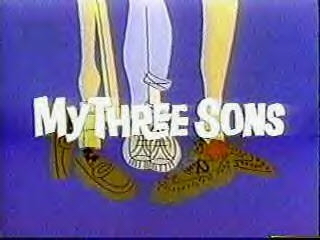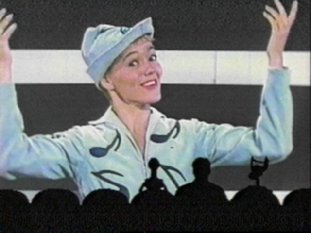Related Research Articles

Sesame Street is an American educational children's television series that combines live-action, sketch comedy, animation, and puppetry. It is produced by Sesame Workshop and was created by Joan Ganz Cooney and Lloyd Morrisett. It is known for its images communicated through the use of Jim Henson's Muppets, and includes short films, with humor and cultural references. It premiered on November 10, 1969, to positive reviews, some controversy, and high viewership. It has aired on the United States national public television provider PBS since its debut, with its first run moving to premium channel HBO on January 16, 2016, then its sister streaming service (HBO) Max in 2020.

The Electric Company is an American educational children's television series produced by the Children's Television Workshop. It was co-created by Paul Dooley, Joan Ganz Cooney, and Lloyd Morrisett. The series aired on PBS for 780 episodes over the course of its six seasons from October 25, 1971, to April 15, 1977. The program continued in reruns until October 4, 1985. The Electric Company later reran on Noggin, a channel co-founded by the CTW, from 1999 to 2003. Noggin also produced a compilation special for the show.

My Three Sons is an American television sitcom that aired from September 29, 1960, to April 13, 1972. The series was filmed in black-and-white and broadcast on ABC during its first five seasons, before moving to CBS for the remaining seven seasons, which were filmed in color. My Three Sons chronicles the life of widower and aeronautical engineer Steven Douglas as he raises his three sons.
Social guidance films constitute a genre of propaganda films attempting to influence children and adults to behave in certain ways. Social guidance films, particularly popular in the mid-20th century, were designed to address various social issues and promote positive behavior among audiences, especially young people. Often produced by government agencies or educational institutions, these films tackled topics such as peer pressure, substance abuse, and moral decision-making, using relatable narratives and characters to convey their messages. produced by the U.S. government as "attitude-building films" during World War II, the genre grew to be a common source of indoctrination in elementary and high school classrooms in the United States from the late 1940s to the early 1970s. The films covered topics including courtesy, grammar, social etiquette and dating, personal hygiene and grooming, health and fitness, civic and moral responsibility, sexuality, child safety, national loyalty, racial and social prejudice, juvenile delinquency, drug use, and driver safety; the genre also includes films for adults, covering topics such as marriage, business etiquette, general safety, home economics, career counseling and how to balance budgets. A subset is known as hygiene films addressing mental hygiene and sexual hygiene.

Adult education, distinct from child education, is a practice in which adults engage in systematic and sustained self-educating activities in order to gain new forms of knowledge, skills, attitudes, or values. It can mean any form of learning adults engage in beyond traditional schooling, encompassing basic literacy to personal fulfillment as a lifelong learner, and to ensure the fulfillment of an individual.

The preschool educational television program Sesame Street was first aired on public television stations on November 10, 1969, and reached its 54th season in 2023. The history of Sesame Street has reflected changing attitudes to developmental psychology, early childhood education, and cultural diversity. Featuring Jim Henson's Muppets, animation, live shorts, humor and celebrity appearances, it was the first television program of its kind to base its content and production values on laboratory and formative research, and the first to include a curriculum "detailed or stated in terms of measurable outcomes". Initial responses to the show included adulatory reviews, some controversy and high ratings. By its 40th anniversary in 2009, Sesame Street was broadcast in over 120 countries, and 20 independent international versions had been produced. It has won eleven Grammys and over 150 Emmys in its history—more than any other children's show.

John Orson Whitaker, Jr. is an American actor notable for several film and television performances during his childhood. The redheaded Whitaker played Jody Davis on Family Affair from 1966 to 1971. He originated the role of Scotty Baldwin on General Hospital in 1965, played the lead in Hallmark's 1969 The Littlest Angel, and portrayed the title character in the 1973 musical version of Tom Sawyer.

The Lawrence Welk Show is an American televised musical variety show hosted by big band leader Lawrence Welk. The series aired locally in Los Angeles for four years, from 1951 to 1955, then nationally for another 16 years on ABC from 1955 to 1971, followed by 11 years in first-run syndication from 1971 to 1982. Repeat episodes are broadcast in the United States by PBS stations. These airings incorporate an original program — usually, a color broadcast from 1965 to 1982 — in its entirety. In place of the commercials, newer performance and interview clips from the original stars and/or a family member of the performers are included; these clips are occasionally updated.

Phillip Earl Niblock was an American composer, filmmaker, and videographer. In 1985, he was appointed director of Experimental Intermedia, a foundation for avant-garde music based in New York with a parallel branch in Ghent, Belgium.

The Ruff and Reddy Show is an American animated television series produced by H-B Enterprises for NBC. It has been referred to as the earliest original color Saturday-morning cartoon, following "Mighty Mouse Playhouse", which was made up of theatrical shorts. This was the first series made by Hanna-Barbera. The series follows the adventures of Ruff and Reddy. It was presented by Screen Gems, the television arm of Columbia Pictures. It premiered in December 1957 and ran for 156 episodes until April 1960, comprising three seasons total. It was repeated on NBC Saturday mornings from 1962 to 1963. In the late 1950s, it was sponsored by Post Consumer Brands.

Scared Straight! is a 1978 American documentary directed by Arnold Shapiro. Narrated by Peter Falk, the subject of the documentary is a group of juvenile delinquents and their three-hour session with actual convicts. Filmed at Rahway State Prison, a group of inmates known as the "lifers" berate, scream at, and terrify the young offenders in an attempt to "scare them straight", so that those teenagers will avoid prison life.

Rick Prelinger is an American archivist, writer, and filmmaker. A professor at the University of California, Santa Cruz, Prelinger is best known as the founder of the Prelinger Archives, a collection of 60,000 advertising, educational, industrial, and amateur films acquired by the Library of Congress in 2002 after 20 years' operation.
Homicide was a landmark Australian television police procedural drama series broadcast on the Seven Network and produced by Crawford Productions. It was the television successor to Crawfords' radio series D24. The "Consummate Homicide cast" includes the four characters that are the best known: Det. Snr. Sgt. David "Mac" MacKay, Det. Sgt. Peter Barnes, Inspector Colin Fox and Sen. Det. Jim Patterson.

Mr. B Natural is a short sponsored film produced in 1956 by Kling Film Productions for the C.G. Conn Company, directed by Phil Patton. It is also the name of the film's main character, played by Betty Luster.

Ken Jacobs is an American experimental filmmaker. His style often involves the use of found footage which he edits and manipulates. He has also directed films using his own footage.
Sponsored film, or ephemeral film, as defined by film archivist Rick Prelinger, is a film made by a particular sponsor for a specific purpose other than as a work of art: the films were designed to serve a specific pragmatic purpose for a limited time. Many of the films are also orphan works since they lack copyright owners or active custodians to guarantee their long-term preservation.

Animaniacs is an American animated comedy musical television series created by Tom Ruegger for Fox's Fox Kids block in 1993, before moving to The WB in 1995, as part of its Kids' WB afternoon programming block, until the series ended on November 14, 1998. It is the second animated series produced by Steven Spielberg's Amblin Entertainment in association with Warner Bros. Television Animation, after Tiny Toon Adventures. It initially ran a total of 99 episodes, along with a feature-length film, Wakko's Wish. Reruns later aired on Cartoon Network from 1997 to 2001, Nickelodeon from 2001 to 2005, Nicktoons from 2002 to 2005, and Discovery Family from 2012 to 2014.
Off the Air is an American psychedelic anthology television series created by Dave Hughes for Adult Swim. The series is presented without explanation or narration as a showcase of surreal footage arranged around a single loose theme and blended without pause into a single continuous presentation. The series premiered on Adult Swim on January 1, 2011, 4:00 am New Year's Day.

The Jewish-Palestinian Living Room Dialogue Group is a non-violent conflict resolution group established in 1992 in San Mateo, California. Its first meeting was held in a local neighborhood residence. As of September 2019, the group remained active and continued to meet monthly in members' homes. The one-to-one, face-to-face method of conflict resolution, modeled by this dialogue group, was increasingly looked to globally by educators, researchers, journalists, activists, trainers, and strategists including the U.S. Department of State, which distributes the dialogue group's instructive films in Africa.

Last Clear Chance is a 1959 American short film produced and directed by Robert Carlisle. Sponsored by the Union Pacific Railroad, Last Clear Chance is a safety film intended to warn young drivers to be careful at railroad crossings. The film's cast consists of William Boyett, Harold Agee, Mrs. Harold Agee, Tim Bosworth, William Agee, Christine Lynch, and Lou Spraker. Written by Leland Baxter, the film was shot in parts of Idaho. Wondsel, Carlisle & Dunphy Inc, based in New York City, served as the film's production company.
References
- ↑ "Social Seminar: Changing (1971)" Prelinger Archives, archive.org.